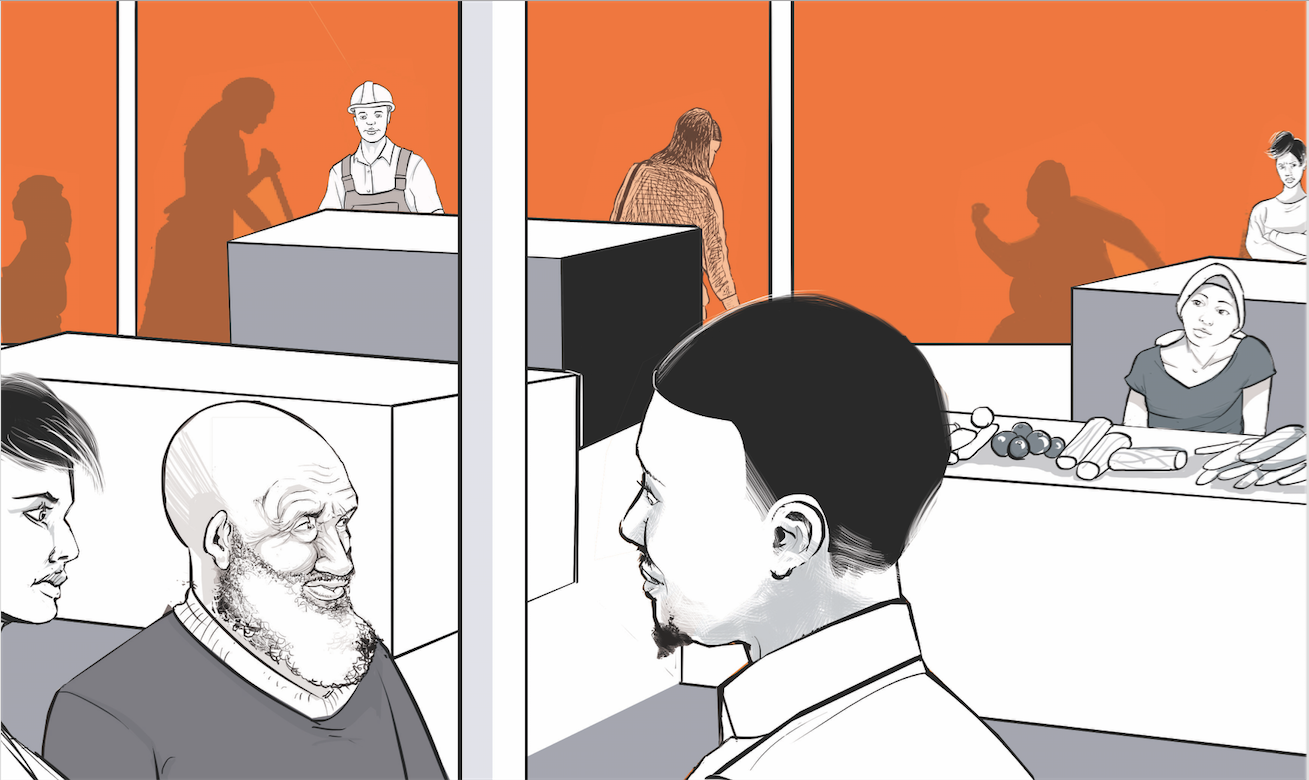

Communication is very important in our everyday lives. It becomes even more imperative when working in a different country. Learning the language of a host country is one way of passing information. However, in an international setting and a new culture, the use of body language as a form of communication is equally important. Thus, it's important for those wishing to live in other cultures to learn acceptable ways to use gestures to communicate effectively.
When it comes to the use of gestures to communicate, perhaps the first body part that comes to mind is the face. Indeed, it's well known that people express emotions such as happiness, sadness and excitement through facial expressions. The way people use their faces to show emotions, however, varies from culture to culture. For example, Southern Europeans such as Italians and Spaniards tend to be very expressive in the use of the face to reveal how they are feeling. In contrast, people in Asia are different because they tend not to reveal their feelings on their faces as much as the Italians; in fact, not making direct eye contact with the person is preferred in some Asian countries.
In North America, people like to use their eyes to connect with others. Looking directly at a speaker is a sign that one is paying attention. However, in some Latin American countries, looking straight at a person is not considered good. Looking down is seen as a sign of respect.
Making eye contact is equally appreciated in countries in the Middle East. People feel that you value what they are saying when you look at them as they talk. But this depends on the situation at that time. When it comes to older people, parents and people of authority, looking straight in the face is viewed as a sign of disrespect.
For thousands of Kenyans working in the GCC countries, adjusting to the culture of the host nations goes far beyond learning the Arabic greetings or understanding employment laws and policies. Success, respect and even a sense of belonging may depend on something far less obvious: body language. In the Middle East, what is unsaid can matter as much as what is spoken.
A good example is the handshake. Among men, it is rarely brief or rushed. A firm, sometimes prolonged handshake signals sincerity and trust. To withdraw too quickly may be seen as disrespect. Moreover, when the right hand moves to rest over the heart after such a greeting, it depicts warmth and genuine respect.
Another important gesture is eye contact, which carries its own weight. While steady eye contact between men shows honesty and attentiveness, prolonged stares across genders, especially in conservative societies like Saudi Arabia, Qatar or the UAE, can cross boundaries and cause discomfort. For many Kenyan workers unaccustomed to these nuances, a simple glance may unintentionally send the wrong message.
In the Gulf, seemingly minor gestures can create unintended friction. For instance, pointing with a finger, passing an item with the left hand or showing the soles of one’s shoes may often be seen as a sign of disrespect. In the Arab culture, even sitting postures matter; crossing the legs in a way that exposes the sole of the shoe can offend in a way most Kenyans would never anticipate.
In addition, the Arab culture values personal space. Standing closer than what many other cultures might expect may not be an intrusion but a sign of genuine interest and engagement. Silence, often seen in the Kenyan culture as awkward or uncomfortable, can be a powerful expression of respect, thoughtfulness or even polite disagreement in the Gulf countries.
For Kenyans working in the Gulf’s service sectors, offices or households, mastering this “silent diplomacy” can make a world of difference. It is not just about avoiding offence—it is about building trust, fostering positive relationships and demonstrating cultural intelligence. A smile, a slight bow of the head or a hand placed on the chest after greeting can open doors that words alone cannot.
In summary, body language is an important means of communication. Its use and interpretation, however, vary from country to country. When people travel for work or even for leisure abroad, they should not presume that the rules for the use of body language in other countries are the same as in their home country. It’s important for Kenyan migrant workers to learn the way body language is used in other countries, just as they try to learn the spoken languages of those countries.
Lecturer and consultant with OXUS Management Consultants, Kenya


















